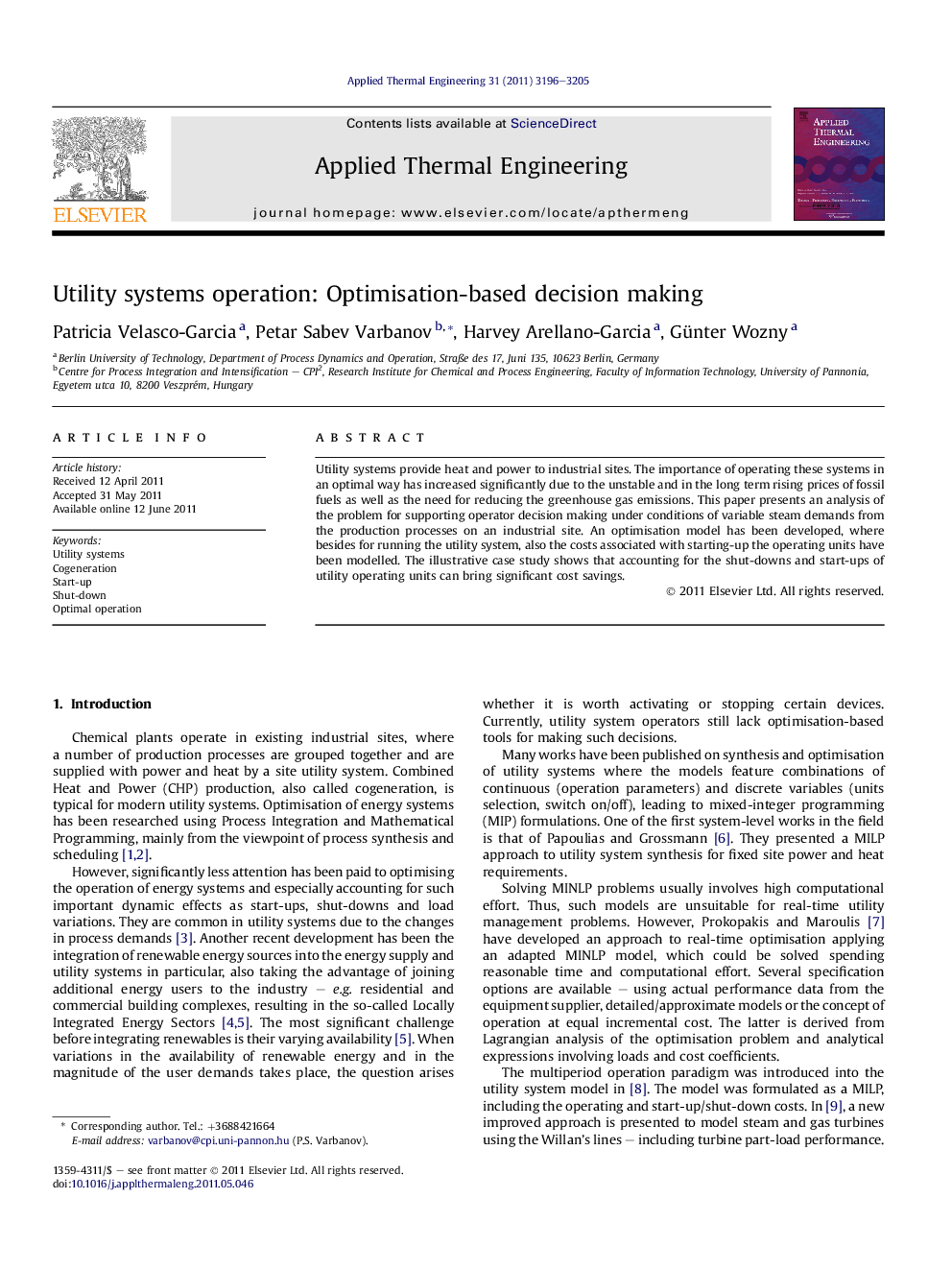| Article ID | Journal | Published Year | Pages | File Type |
|---|---|---|---|---|
| 647656 | Applied Thermal Engineering | 2011 | 10 Pages |
Utility systems provide heat and power to industrial sites. The importance of operating these systems in an optimal way has increased significantly due to the unstable and in the long term rising prices of fossil fuels as well as the need for reducing the greenhouse gas emissions. This paper presents an analysis of the problem for supporting operator decision making under conditions of variable steam demands from the production processes on an industrial site. An optimisation model has been developed, where besides for running the utility system, also the costs associated with starting-up the operating units have been modelled. The illustrative case study shows that accounting for the shut-downs and start-ups of utility operating units can bring significant cost savings.
► Optimisation methodology for decision making on running utility systems. ► Accounting for varying steam demands. ► Optimal operating specifications when a demand change occurs. ► Operating costs include start-up costs of boilers and other units. ► Validated on a real-life case study. Up to 20% cost savings are possible.
